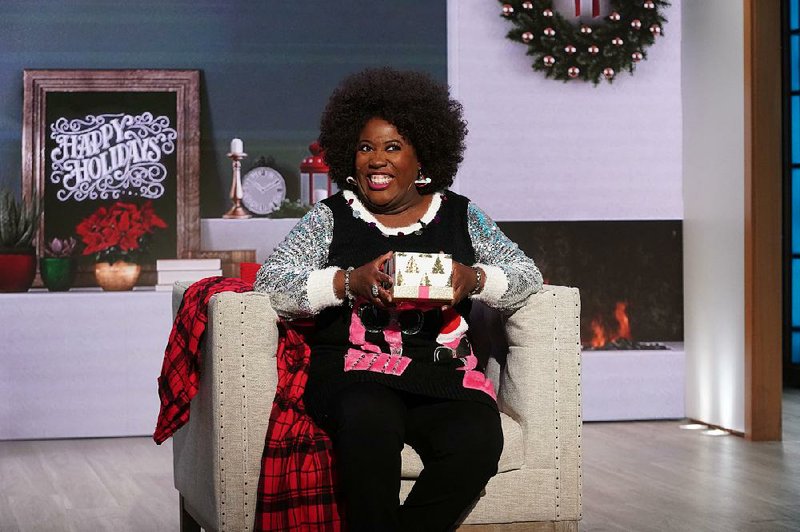Weekday mornings on CBS, Sheryl Underwood sits at a table with her fellow co-hosts on The Talk, but she's far from forgetting her roots in stand-up comedy.
Fans may remember Underwood's early days on HBO's Def Comedy Jam and BET's Comic View, honing raw routines on the urban comedy circuit. Daytime TV hasn't toned her down.
"I keep it raw and real," she says. "It's from the street."
While she says she hasn't changed, she has noticed some differences in her audiences since she joined The Talk in 2011.
"I am concerned with them old white ladies who show up," she says. "Don't they know what they paid to see? This is racial, sexual, political humor. It's not how I am on The Talk. They come and they wanna see me, and it's not that I tone it down. It's about the evolution of how (I) articulate certain points of view."
Underwood says the producers of The Talk have allowed her to be herself.
"When I first got to The Talk, I brought the producers to see my live show and asked, 'What do you think? Do I have to change anything?' They were laughing so hard. I'm allowed to have the duality of my street life and mainstream corporate life. I want to bring people together," she says.
She is aware of the changing comedy climate. What a comedian could say onstage 30 years ago -- or even 10 years ago -- doesn't always fly today.
Underwood comes from the school of comedy where anything goes, citing legends such as Eddie Murphy, Richard Pryor, Moms Mabley and Bernie Mac as influences. Years ago, she says, she used the "R-word" when referring to her disabled sister. Now, "I don't tell (that) joke a lot. Sometimes it doesn't work. As times change, so does the acceptance of certain words. To get you ready, in the beginning of my sets, I tell them I'm gonna use certain words. People ask when (I'm) going to stop using certain words. When they're no longer effective."
She says her type of comedy, born and bred in after-hours juke joints, has always been profane and offensive. Those who come to her shows should show up with an open mind and remember that they go to comedy clubs to see comedy. Fans should trust in the comic enough to understand the art as it was created, she says.
"A good joke can withstand anything," Underwood says.
Her stand-up show covers lots of topics, including marriage and a bit about other women of daytime television.
"If I can get your attention and make you laugh," she says, "then I can instill in you things to make you think and act."
That's what has kept Underwood touring up to 40 weeks each year. Regular paychecks from CBS allow her a good life, she says, and her touring gigs help fund causes that matter to her.
She founded "Black Radio Solidarity: Driving Souls to the Polls" to participate in elections and the 2020 census, among other things. The initiative is also planning a re-creation of the 1963 March on Washington.
"I may talk racial and sexual and use all the curse words, but I'll also encourage you to vote," Underwood says. "We're using the public airwaves to defend and protect democracy. We gotta use the power of all of black radio."
Her own Sheryl Underwood Radio program is broadcast on stations nationwide.
She says her comedy also helps her produce scripts and support her sports initiative for young black men.
"I like the smell of the nightclubs -- I can't come out of the comedy clubs just yet," she says. "There's more I want to do -- more good in the neighborhoods. A lot of us holding a microphone have a responsibility."
Weekend on 01/23/2020
